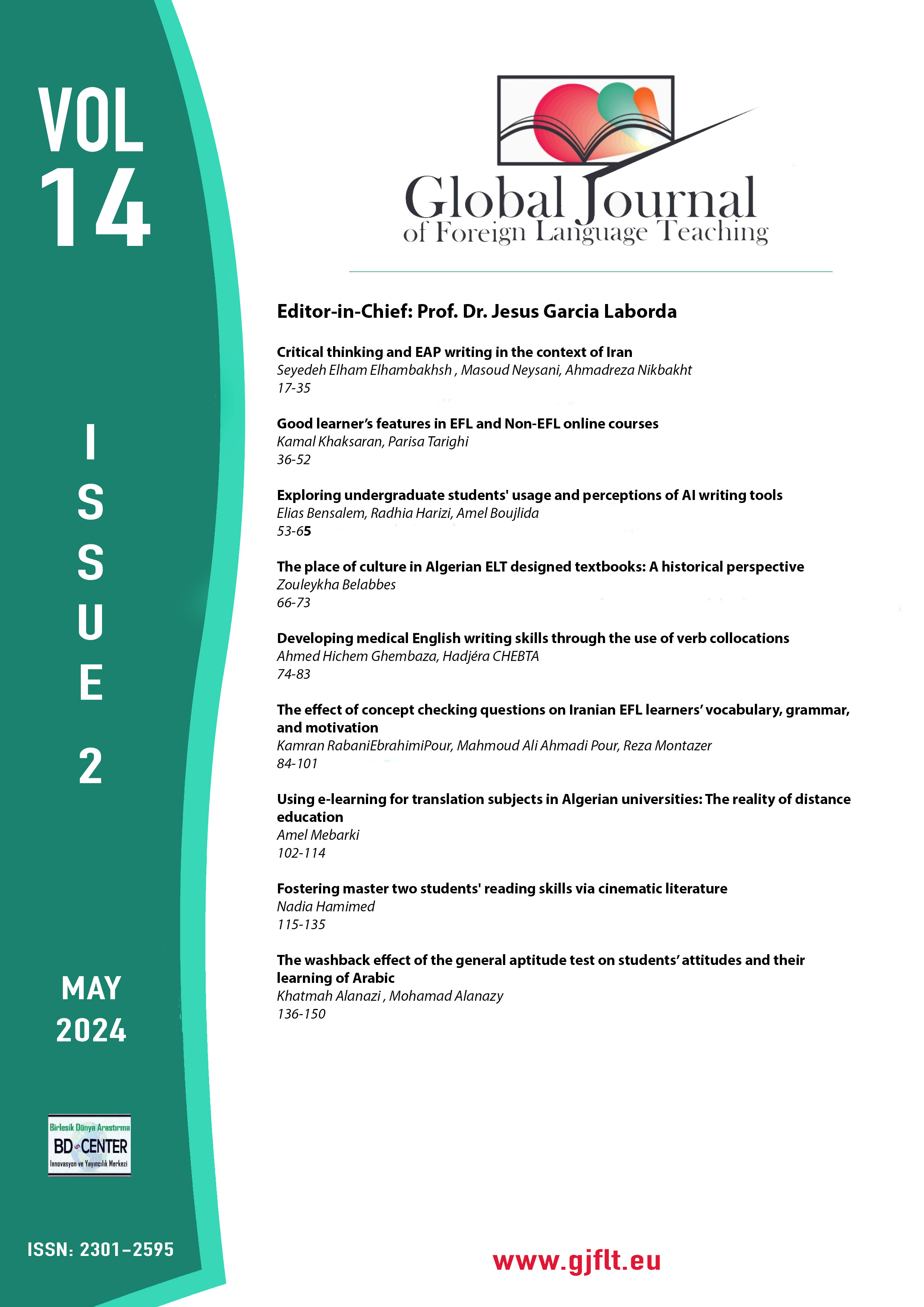Good learner’s features in EFL and Non-EFL online courses
Main Article Content
Abstract
The current study attempted to compare the attitudes of IELTS students studying at an institute and nursing students at a university on the attributes and features of successful learners in online classes. For this purpose, three experienced university professors were interviewed and six themes were extracted: digital literacy, learner autonomy, initiative, motivation, learners’ attitude, and accountability. These themes were used in a questionnaire to ask about the attitudes of the two groups of the participants mentioned. The qualitative data on their in-depth ideas were collected via a section headed 'comment' in the questionnaire and interview of the participants. The results of the Chi-square tests of independence showed that both groups of students agreed on all features except attitudes and motivations. The result of the qualitative data analysis revealed that both groups were cognizant of the importance of these features to be successful and good students in online classes and without them, they could not make the best use of these classes. However, on the variables of attitude and motivations, contrary to students of institutes who had positive ideas, university students had negative motivations and attitudes about online classes. The findings can have implications for the parties involved.
Keywords: Good learners' features; online classes; perception,
Downloads
Article Details

This work is licensed under a Creative Commons Attribution-NonCommercial-NoDerivatives 4.0 International License.
Authors who publish with this journal agree to the following terms:- Authors retain copyright and grant the journal right of first publication with the work simultaneously licensed under a Creative Commons Attribution License that allows others to share the work with an acknowledgement of the work's authorship and initial publication in this journal.
- Authors are able to enter into separate, additional contractual arrangements for the non-exclusive distribution of the journal's published version of the work (e.g., post it to an institutional repository or publish it in a book), with an acknowledgement of its initial publication in this journal.
- Authors are permitted and encouraged to post their work online (e.g., in institutional repositories or on their website) prior to and during the submission process, as it can lead to productive exchanges, as well as earlier and greater citation of published work (SeeThe Effect of Open Access).
